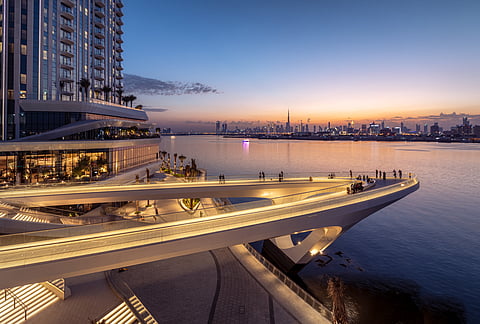How the rising global nomad billionaire redefines home ownership
For today’s global citizens, luxury properties are strategic assets than indulgences

Dubai: It was a late summer evening when I first saw the message pop up in my inbox: ‘Ultimate Tax-Free Anywhere’. I had been hearing whispers of this idea that one could build not just wealth, but a life, unfettered by the usual expectations of tax residence, fixed assets, national loyalty.
The book ‘Nomad Billionaire’, authored by Aarav Khadka, captures this impulse in stark clarity. The concept highlights how high-net-worth individuals increasingly view countries as strategic choices rather than permanent loyalties, redefining home, citizenship, and residency to legally minimize taxes, enhance mobility, and optimize personal and financial freedom.
The insight reflects a shift among global billionaires, especially visible in MENA luxury real estate, where ‘home’ is now tied to a curated network of residences, legal bases, and lifestyle hubs that collectively offer status, privacy, and mobility. Unlike past generations rooted in one place or nation, today’s wealthy elites are borderless, defining home through global mobility, influence, and lifestyle rather than geography or nationality.
Homes as lifestyle nodes
For today’s global citizens, luxury properties are strategic assets rather than indulgences, forming an interconnected lifestyle network that enables fluid movement across business, leisure, and culture. This trend is especially evident in the Middle East, where cities like Dubai, Riyadh, and Doha are emerging as key lifestyle hubs combining stability, innovation, and world-class infrastructure.
Currency of privacy, brand
The new luxury paradigm revolves around three key currencies: privacy, mobility, and brand status. Ultra-wealthy buyers seek homes that offer sanctuary-level privacy, frictionless global mobility through smart design and services, and the prestige of owning branded residences that reflect their identity. In the MENA region, developments in Dubai, Riyadh, and along Saudi’s Red Sea coast exemplify this shift, blending discretion, connectivity, and cultural cachet into a new asset class for global elites.
Borderless ownership model
The idea of ‘primary residence’ is dissolving. Instead, ownership is becoming fluid, fractional, diversified, and experiential. Some ultra-high-net-worth individuals are exploring co-investment in global residence portfolios, while others treat their properties as curated stages for life’s chapters, not as permanent fixtures. This evolving psychology has implications for developers. We are not building houses, but crafting touchpoints in a billionaire’s global journey. And based on my experience in the market, I have seen firsthand how clients expect more than walls and views. They expect a philosophy of living that aligns with their fluid identities.
Out-of-the-box perspectives
If we project this trend forward, three out-of-the-box dynamics are worth watching. First, residences become passport alternatives. In a world where mobility is power, governments may begin offering ‘networked residency rights’ tied to luxury property ownership across allied nations. Golden visas, facilitated residency schemes driven by mega real estate investments have always been there, and will still be at higher premiums. Second, AI-integrated villas. These are homes that adapt to their owner’s preferences instantly, mirroring the lifestyle of the Dubai residence in Marbella or London without the owner lifting a finger. And last are global branded villages. Imagine an ecosystem where every villa in different continents is designed by the same brand, creating a seamless continuity of identity for the nomadic billionaire.
MENA region’s defining role
The Middle East is a central architect in this shift. With mega-projects in Saudi Arabia, luxury branded residences in Dubai, and lifestyle-driven developments across the Gulf, the region is setting new benchmarks. The global nomad billionaire views the Middle East as a hub in their worldwide matrix of living. In this context, the question is no longer ‘Where is home?’ but rather ‘Which home best suits today’s chapter’” The answer is increasingly being written in the villas, penthouses, and retreats of the MENA region.
- The writer is Executive Director of TownX


